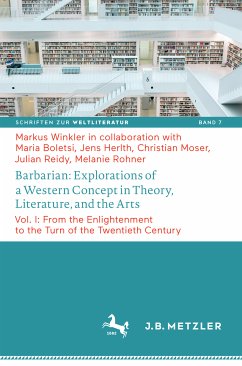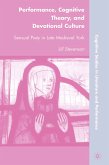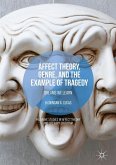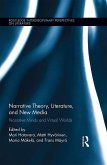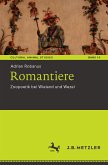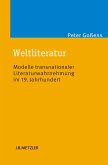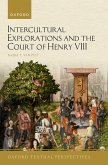Diese auf 2 Bände konzipierte komparatistische und interdisziplinäre Studie in englischer Sprache geht der Geschichte des Barbarenbegriffs vom 18. Jahrhundert bis zur Gegenwart nach. Seit der griechischen Antike spielen Bild und Begriff des Barbarischen eine eminente Rolle für das abendländische Selbstverständnis. Die Studie verbindet Epochenüberblicke mit der Analyse herausragender literarischer, philosophischer, politik- und kulturtheoretischer, aber auch bildkünstlerischer und kinematographischer Werke und legt einen besonderen Akzent auf den Beitrag ästhetischer Verfahren zur Aufdeckung der Herkunft und der Implikationen des Barbarenbegriffs.
Dieser Download kann aus rechtlichen Gründen nur mit Rechnungsadresse in A, B, BG, CY, CZ, D, DK, EW, E, FIN, F, GR, HR, H, IRL, I, LT, L, LR, M, NL, PL, P, R, S, SLO, SK ausgeliefert werden.

